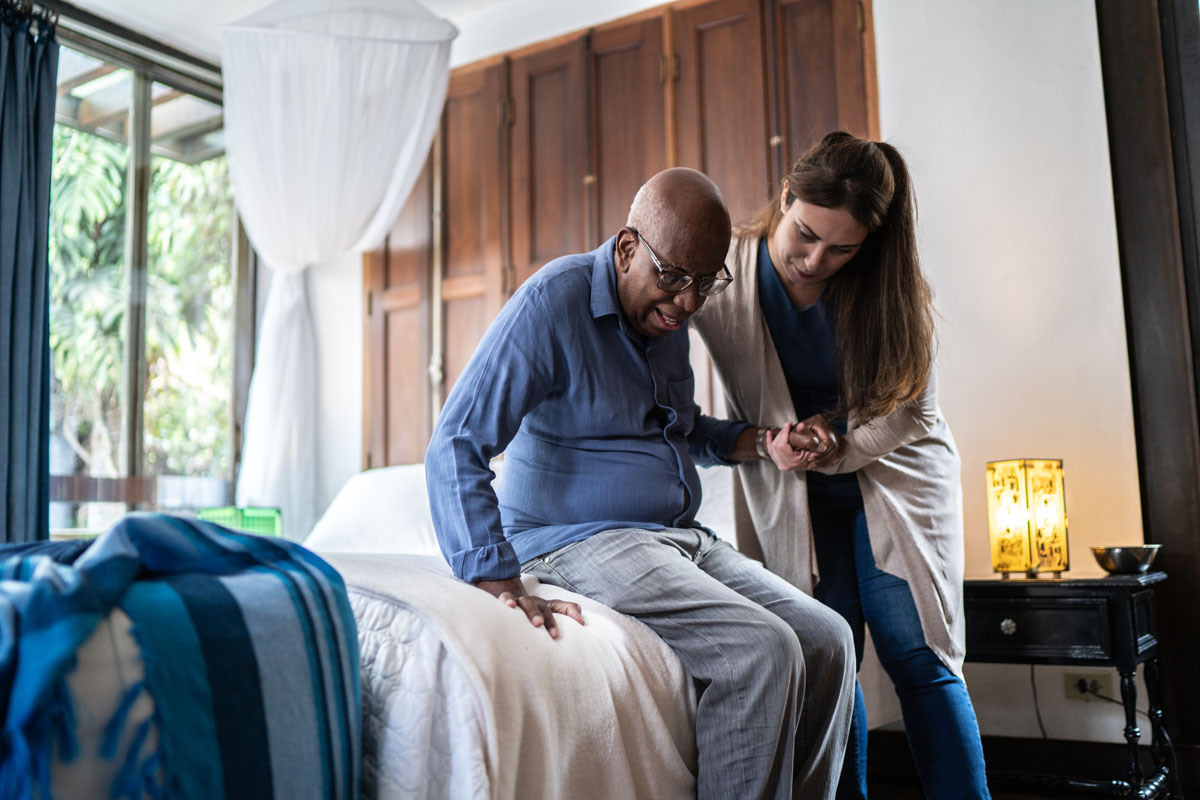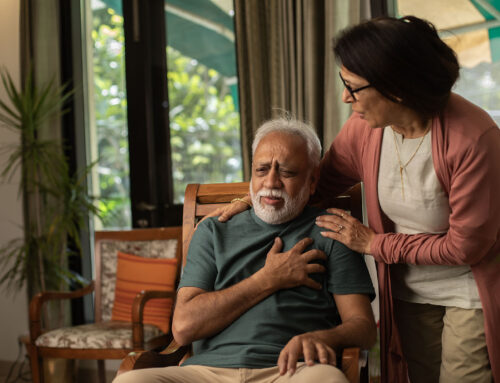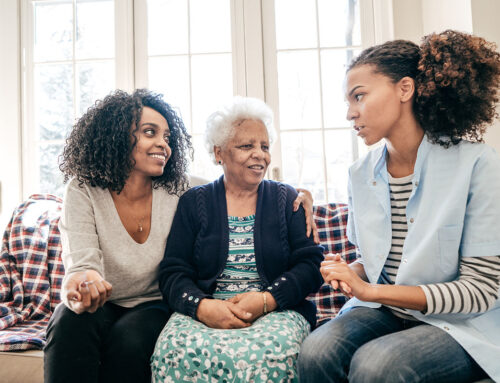Coping with dementia is challenging, using visual aids can help. We hope our Coping With Dementia – How to use visual aids is helpful to families facing these challenges.
Visual aids can be simple, but they can foster a sense of independence and autonomy for those coping with dementia. We can use them as a way to remind a loved one of where things are. Remember, a loved one with dementia is cognitively disabled, so they may have difficulty remembering where daily things are stored like shoes, trousers, shirts or where kitchen related items are located. As caregivers, it may be difficult to recognize some signs of cognitive disability. As the condition progresses a loved one may need help remembering basic structure such as which room is their bedroom, which room is the bathroom and more. So visual aids may transcend what initially occurs to us as what might be needed or beneficial. Thinking on a different level with a new perspective will help us help our loved ones.
One way to provide visual aids for this kind of assistance is to label things. Printed words may be fine, such as “Forks, Spoons, Knives.” While people with dementia may be able to read for a significant period of time, their reading comprehension and ability to focus deteriorates. Adding photographs can be beneficial. One easy way to add photos is to buy a polaroid. Yes – they still make them! https://bit.ly/3GTokSQ Label cabinets and doors with what’s inside and add a Polaroid photo to reduce the need to comprehend the words. Label doors such as ‘My bedroom’, ‘bathroom’ and add a photo.
Using a large display digital clock may be beneficial to help them keep track of the day and time. https://bit.ly/4o3Gpy1 Many have alarms that will display a message such as a reminder to call, take a medication or to expect your visit. A dry erase board can be added in a central location to help loved ones remember the day and any events planned for that day.
Just as every patient is different, every case is different. As their caregiver, you already know, or you can observe how much assistance your loved one needs. That level varies widely depending on the severity of the condition. It’s a changing landscape as dementia progresses, you may observe that the level of assistance intensifies as the stage of dementia progresses.
The sequence of steps for simple processes can be confusing for those coping with dementia. Viewing a task as a whole rather than as a series of small steps can induce anxiety and frustration.
Depending on the stage of dementia, a loved one may benefit from visual aids of written instructions paired with photos that break a task into their most fundamental steps. In the middle stage of dementia, a loved one living with dementia may still be able to participate in daily activities, but they’ll need your personal one-on-one assistance. It’s important to find out what your loved one can still do or find ways to simplify tasks. As the need for more intensive care increases, it may benefit caregivers and their loved ones to consider aligning professional resources.
Our goal, of course, is to help your loved one function as independently as possible. Additionally, our goal is to reduce frustration, avoid agitation, and circumvent anxiety. The more we can help reduce their stress, help them remain calm and help them to relax, the more we are improving their quality of life.
Be observant. If you are not yet providing personal one-on-one assistance around the clock, notice if there is evidence that they are successfully completing their activities of daily living. Notice if they have showered, brushed their teeth, had coffee or lunch. Have they taken their medications? Organize them in multi-event pillboxes so that you can keep track. It will be your attention to detail that forewarns you to escalate their care to a higher level. Thank you for taking the time to read our Coping With Dementia – How to use visual aids, we hope we’ve helped.
To learn more about dementia and Alzheimer’s disease follow these links.
1 – https://rozeroom.org/understanding-alzheimers-and-dementia/
2 – https://rozeroom.org/coping-with-an-alzheimers-diagnosis/
3 – https://rozeroom.org/8-ways-hospice-helps-families-living-with-alzheimers/
4 – https://rozeroom.org/how-to-have-sensitive-healthcare-conversations-with-an-aging-parent/
Our team provides specialized care for loved ones living with end-stage dementia and Alzheimer’s. We are dedicated to enhancing quality of life and relieving the challenging symptoms associated with these conditions. To learn how we can support your family, connect with a member of our compassionate team.
Please share Coping With Dementia – How to use visual aids with any family facing Alzheimer’s or related dementias. It’s never too early to start learning and anticipating what strategies may work best.





